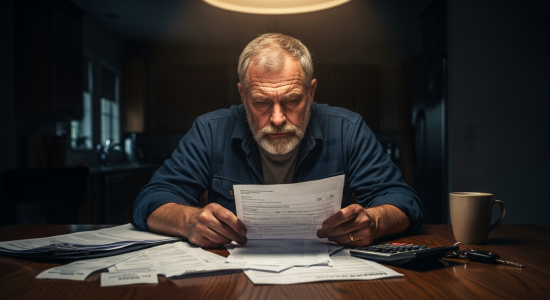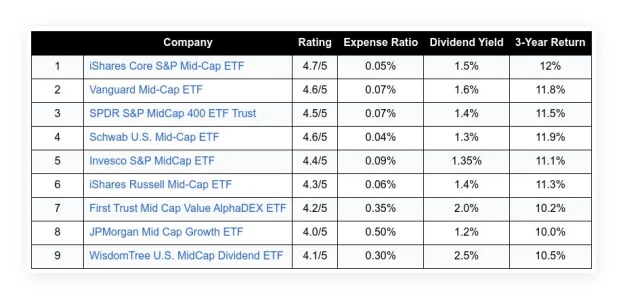In both your personal and financial lives, buying your first home is one of the most significant decisions you will ever make. You might say that it’s the toughest and most terrifying long-term commitment you’ll ever make.
However, when you don’t prepare yourself for a mortgage contract in advance, it can seem overwhelming. When you finally move into your first home, you’ll be at an advantage if you take the time to learn. And, there’s no better way to educate yourself than reading these 12 books for buying a home.
Table of Contents
Toggle1. Nolo’s Essential Guide to Buying Your First Home by Ilona Bray, Alayna Schroeder, and Marcia Stewart
With Nolo’s Essential Guide, you can find answers to questions you never even thought to ask. In fact, after reading this book you’ll learn how to:
- Analyze the local market and listings
- Select between a house, condo, co-op, or townhouse
- Plan a realistic budget
- Obtain a loan that you can afford
- Borrow from family or friends to make a down payment
- Invest in inspections and insurance to protect yourself
- Successfully negotiate and close the deal
Real estate experts from 15 different companies contributed to this book. It’s a team consisting of brokers, attorneys, mortgage experts, home inspectors, and neighborhood researchers. Also included are real-life stories from over 20 first-time homebuyers.
2. Home Buying Kit for Dummies by Eric Tyson and Ray Brown
As with all the Dummies books, there is no assumption you are already familiar with the subject. As a result, these books, especially this one, provide a lot of useful information that is presented in an easy-to-digest way.
The 7th Edition of Home Buying Kit For Dummies also features updated online resources for buyers, as well as brand new content of particular interest to millennials.
And, after closing, you’ll want to keep this book close at hand because it contains helpful information on selling your house. This isn’t your last home, it’s your first.
3. Buying a Home: The Missing Manual by Nancy Conner
Nancy Connor’s book is another comprehensive introduction to the world of real estate, providing information on everything from how to prepare to buy a home. The guide provides detailed information about every step of the process as well as a list of questions to ask.
In particular, you’ll learn:
- How much you can afford to spend on a house
- Build a real estate team that looks after your interests
- Learn the different ways you can finance your house
- Ensure your offer is attractive and has the best chance of being accepted
- Get an understanding of what lenders look for when approving mortgages
- Find out if there are any problems with your new home by inspecting it
- Make sure all the paperwork is in order for a smooth closing
With its clearly written and thorough information, it equips homebuyers with the knowledge they need to ask the right questions and make informed decisions. Additionally, the book contains forms and exercises that can help the indecisive gain a better understanding of what they really need.
4. How to Get Approved for the Best Mortgage Without Sticking a Fork in Your Eye: A Comprehensive Guide for First Time Home Buyers and Home Buyers Getting a Mortgage Since the Mortgage Crisis of 2008 by Elysia Stobbe
Having worked in the mortgage industry for decades, Elysia Stobbe is an expert in the field. In addition to being a tough cookie, she also knows the mortgage approval process can be stressful, frustrating, and even make you want to jam the titular silverware right into your eye.
In her book, she explains how to navigate the mortgage process, as well as the different types of mortgages, loan programs, mortgage insurance, and how to find a trustworthy broker. Best of all? By breaking it down into bite-sized pieces, she makes it easier to digest.
The book is an absolute must for anyone who is a first-time home buyer and has no idea what they are doing.
5. The Super Simple Home Buyer’s Handbook by Timothy L. Carver, Clint T. Carver
Let’s be honest. When you’re looking for your first home, you’ll find most homeownership books are extremely long and tedious. In addition, you may not have unlimited time to read page after page.
All the best tips and most helpful resources from the authors of this book are condensed and simplified in this short but useful book. It includes topics like:
- A step-by-step guide to buying a home
- The do’s and don’ts
- Tips for touring a home
- Definitions of confusing words and terms
Even better? The book has less than 60 pages and is straightforward and easy to follow.
6. The Home Buyer’s Checklist: Everything You Need to Know — But Forget to Ask — Before You Buy a Home by Robert Irvin
With more than three decades of experience as a broker and consultant, Robert Irvin’s The Home Buyer’s Checklist is an invaluable tool. In it, all the hidden costs that may arise after an initial inspection are detailed. After all, there are many issues to consider when buying a home, including:
- Door frames that are off-center
- Floors and fireplaces that are damaged
- Attics with inadequate insulation
- Their role in negotiating
In order to make this less overwhelming, the book is divided into rooms. Any home-buyer who wants to avoid getting stuck by existing problems should read this book. It’s clear, concise, and incredibly useful.
7. Zero to Home Owner in 8 Simple Steps: A First Time Home Buyer’s Guide to Skip the Stress, Avoid Costly Mistakes, and Save Thousands by Sam Loveless
There is nothing more stressful than buying a home. If you want to become a homeowner, don’t let that stop you. That may sound easier said than done, but this book should make you feel more confident.
Not only is informative, but it’s also easy to comprehend. What’s more, despite being written by a knowledgeable person like Sam Loveless, it’s a quick read. However, it doesn’t skimp on key topics, including:
- One simple strategy to save literally tens of thousands of dollars
- The best way to streamline the process and shorten the time it takes to complete it
- The importance of shopping around, and how to negotiate effectively with the right people
- Preparing for each step of the process and what to expect
- The insider’s secrets to saving even more money and avoiding expensive yet common mistakes
8. Keep Calm . . . It’s Just Real Estate: Your No-Stress Guide to Buying a Home by Egypt Sherrod, Amber Noble Garland
If your anxiety about mortgages, roots, and dream homes is getting the better of you, you might want to change the tone. This book offers a great mix of advice, facts, and humor from Egypt Sherrod, host of HGTV’s “Property Virgins.”
What is the main takeaway? If you do some research and make thoughtful choices, buying your first home does not have to be a stressful nightmare.
The approach in this book is friendlier, kinder, and gentler than the others, despite the fact that it doesn’t contain as many facts and figures. As a result, it makes such a big decision seem less terrifying and easier to understand.
9. The Mortgage Encyclopedia: The Authoritative Guide to Mortgage Programs, Practices, Prices and Pitfalls by Jack Guttentag
For many people, the mortgage is the biggest factor in their home-buying decision. No matter how overwhelming this may seem, let’s be honest. A mortgage is just another way of saying “huge loan.”
Often, first-time buyers are shocked to find out how much they can borrow — or how little. In addition, they’re surprised to realize that mortgages come in a wide variety of sizes and shapes. Furthermore, loan officers can be very creative when putting together financing packages, which can make things even more complicated. Because of this, you may feel pressured into signing a bad contract.
There is a lot to learn about mortgages and the different options you may encounter. But, thankfully, this comprehensive reference work provides the guidance you will need.
10. The 106 Common Mistakes Homebuyers Make (and How to Avoid Them) by Gary W. Eldred
With twenty-five years of experience investing in real estate and consulting with many Fortune 500 companies, Gary W. Eldred provides first-time buyers with everything they need to know. This book includes everything from avoiding the most common mistakes and negotiating with sellers to securing the best mortgage.
It shows you the most common mistakes buyers make based on the experiences of hundreds of homebuyers, agents, builders, and mortgage lenders.
A unique feature of Eldred’s book is that he makes you think about home buying “mathematically.”
11. Real Estate Investing Buying Your First House Younger: Discover 7 Home Buyers Secrets, Escaping Beginner’s Mistakes, Stress, and How It Can Also Become Your First Investment Property by Lou Vachon
The research Lou Vachon has done on the real estate niche is evident. This information has been used to compile a list of things potential homeowners need to consider before making such a significant financial commitment.
A first-time home buyer’s guide, his book provides essential information and how-to instructions, such as:
- The neighborhood you are considering can have a significant impact on home values to the tune of 20 percent
- Even if it seems like a great deal, a light initial cash investment can be harmful to your finances
- How to meet your down payment requirement in less time without relying on no down payment loans
- The best way to increase your credit score and prepare for unexpected major expenses
- Learn these essential skills for saving money on maintenance
The information and tools provided in this book will help you achieve your dream of owning your own home — regardless of whether you think you can or cannot.
12. The Amityville Horror by Jay Anson, Ray Porter
It is possible when you are house-hunting to overlook some of the potential problems because it is so exciting. To deflate your sense of optimism, there are books you might find helpful to deter you from buying too much house or neglecting potential pitfalls.
An example is Jay Anson’s horror classic “The Amityville Horror.” On the south shore of Long Island, George, and Kathy Lutz and their three children moved into a house at 112 Ocean Avenue, Amityville, in December 1975. After 28 days, the Lutzes fled their house due to paranormal activity.
FAQs
What are the advantages of buying over renting?
Homeownership is an investment. Rent is a one-time transaction, meaning you write a check each month and your hard-earned money is gone for good. On the other hand, owning a home allows you to deduct the interest paid on your mortgage loan from your federal income taxes. In addition, you can deduct it from state income taxes. As a result, you will save a lot of money every year since your mortgage interest will make up the bulk of your monthly payment.
Additionally, homeowners can deduct their property taxes. Over time, your home’s value may rise as well. Last but not least, you’ll get a home you can call your own – one that reflects your personality.
What is the maximum mortgage I can afford?
First-time homebuyers should ask this question first, as it helps manage their expectations and gives them a sense of how much everything will cost.
Generally speaking, your mortgage should not exceed 28 percent of your total gross income or 36 percent of your total debt, although this varies from person to person.
How do I qualify for a loan?
When determining whether you qualify for a mortgage, mortgage lenders will take into account your employment history, credit score, debt-to-income ratio, and down payment. However, good credit scores and stable employment history are the two most significant factors for lenders.
Depending on how much pre-tax income you have, mortgage lenders might also evaluate your total debt, such as student loans, car payments, and credit cards.
Can I buy a home even with bad credit and a little down payment?
You may be interested in federal mortgage programs in situations like the one above. To find out about your options, contact a HUD-funded housing counseling agency.
Additionally, you might be able to qualify for local homebuying programs by contacting your local government. Your local office of housing and community development can be found in the blue pages of your phone directory, or you can contact the mayor’s office or county executive’s office if you cannot find it.
Is there anything else I need to consider besides the mortgage payment?
Obviously, you will have to pay your utilities each month. You may be unfamiliar with this if your utilities are included in your rent. If you want to know how much utilities normally cost, your real estate broker can assist you.
You might also have dues to homeowner associations or condo associations. Property taxes are a given, and you may also have city or county taxes as well. In most cases, your mortgage payment includes taxes. Again, your broker can assist you in estimating these costs.















